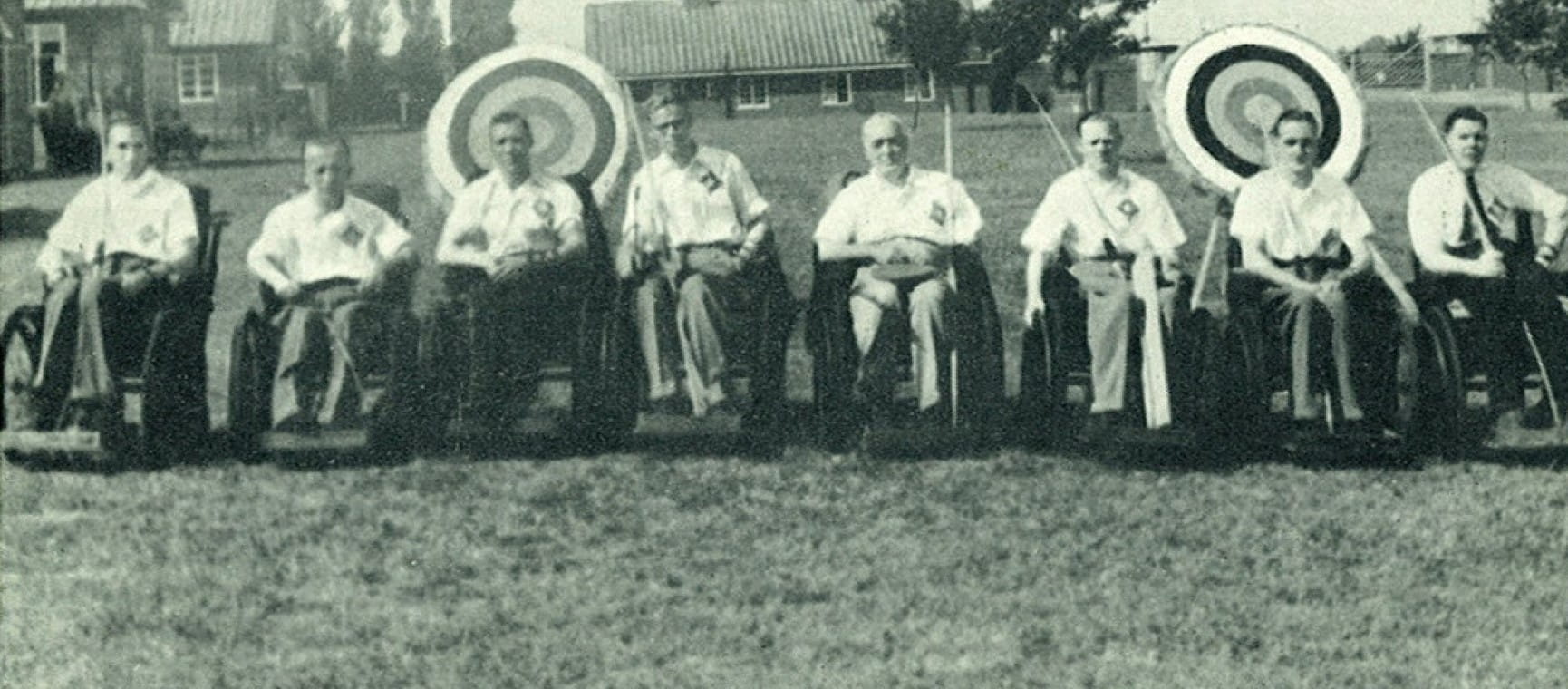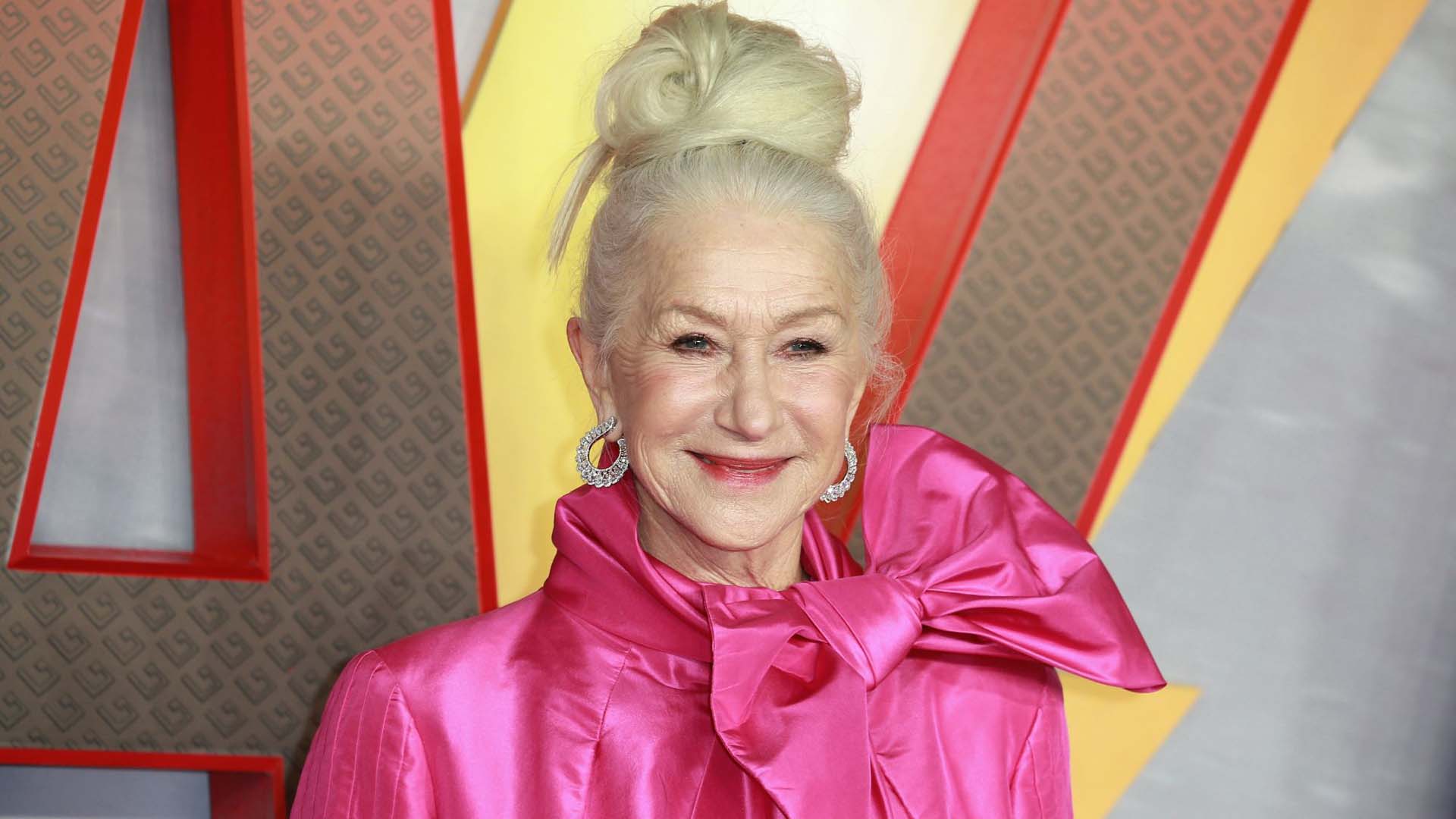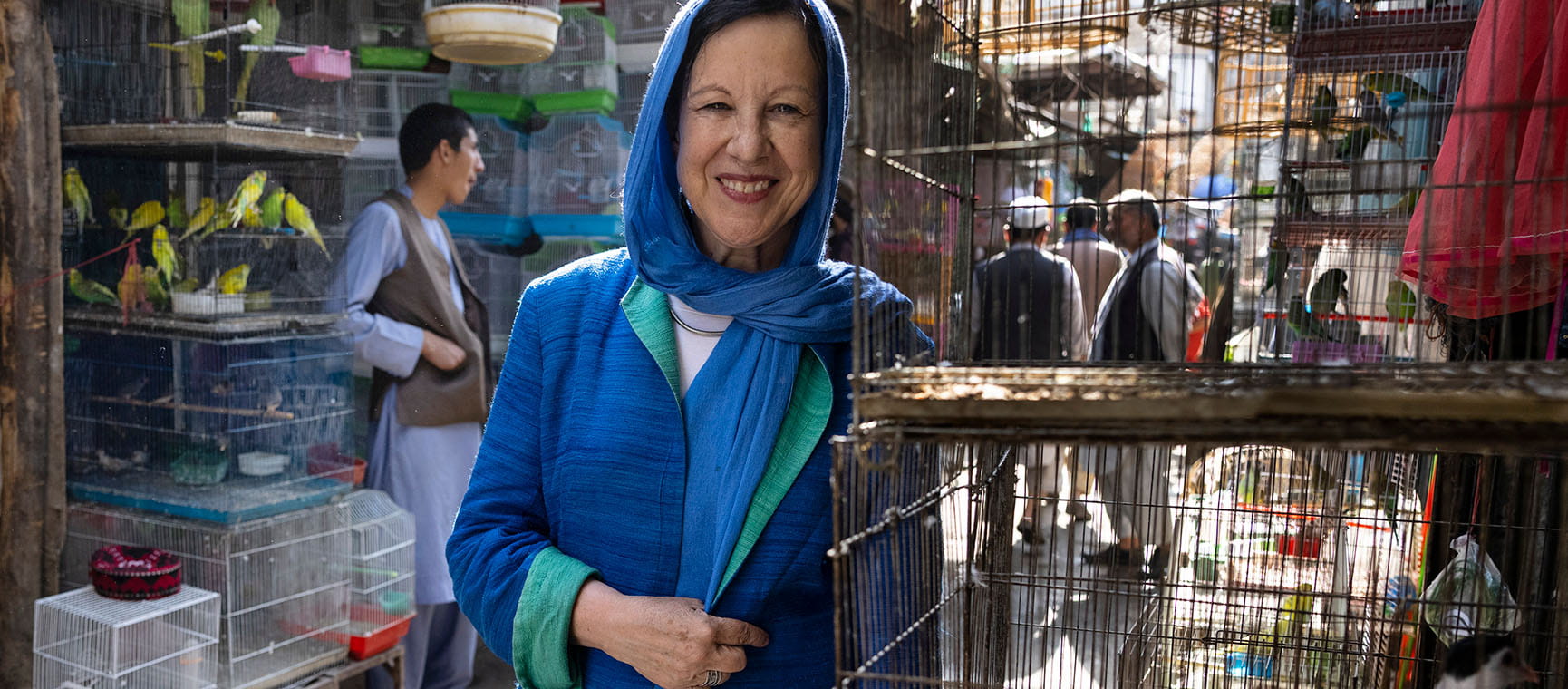Paralympics: A sporting chance
Millions will be cheering on the Paralympic athletes in Paris this month. Yet it all started with 16 archers in an Aylesbury field.

Millions will be cheering on the Paralympic athletes in Paris this month. Yet it all started with 16 archers in an Aylesbury field.

As the 1948 London Olympics opened in Wembley Stadium, a group of injured servicemen and women gathered in a sun-drenched field behind the National Spinal Injuries Centre in Stoke Mandeville, Buckinghamshire, for an archery tournament.
All were wheelchair users. Most were patients.
The event was organised by Dr Ludwig Guttmann, founder and director of the hospital. Dr Guttmann believed that sport could open the door to a new life for the young people who filled his wards and was convinced that one day these games would become equivalent to the Olympics.
Dr Guttmann was determined to give his patients lives worth living
It seemed highly unlikely. Yet this month’s Paralympics in Paris, with its 549 medal events and 22 sports, originated in that Aylesbury field.
Dr Guttmann’s teenage daughter, Eva Loeffler, was a volunteer that day – she didn’t have much choice.
"When my father wanted something done, there was no argument," she recalls. "Everything was done by volunteers. I had to pick up the archery arrows.
"After the medals, I carried around trays of beer for everyone, including the competitors. Can you imagine that now? The 2012 Olympic village in London was completely dry!"

Dr Guttmann’s approach was new. A Jewish neurosurgeon, he had escaped to England from Nazi Germany and opened the centre in Stoke Mandeville in 1944.
"Before then, paralysed people were really just left to die," says Eva, now 91, a retired physiotherapist. "Their life expectancy was weeks or months. They were very often left in plaster beds that looked like coffins, unable to move. They usually died from bed sore infections or urinary infections.
"My father had the idea of turning patients every two hours and he treated infections with very early penicillin."
Having saved their lives, Dr Guttmann was equally determined to give his patients lives worth living. Sport built muscle and fitness, coordination and balance, but also confidence.
Archery became a compulsory part of physiotherapy, followed by more active sports. The competition in July 1948 became an annual event - with more sports added - called the Stoke Mandeville Games.
Over the years, patients from other spinal units came to compete and in 1960 it became the Paralympic Games, held in Rome, although it was still sometimes known as the International Stoke Mandeville Games.
Caz Walton, now 77, won 10 gold medals at six Paralympic Games, in different sports.
"In 1962, I was 15 and under the care of Great Ormond Street Hospital when my mum took me to the games at Stoke Mandeville. The facilities were rudimentary, but the atmosphere was beyond my imagination.
"There was such camaraderie and real competition. Dr Guttmann was so motivational. He made you believe you could achieve anything.
"Two years later, I was lucky to be selected for the Tokyo Paralympics. A team member had been taken ill, so I was given a fortnight’s notice. I’d never been out of the country, so it was a huge adventure.
"There was so little funding that they couldn’t afford to have specialist competitors, you had to be an all-rounder. I tried five or six different sports, some for the first time! One was shot put – I was not built for it and didn’t do well. But I won golds for swimming and wheelchair slalom.
"After that, I wanted to get better in as many sports as possible so I’d always be picked. Over the years, I’ve won 10 golds.
"I envy today’s athletes. It was my life’s ambition to do it full-time, but I had a job at BT and I’d train after work and weekends and use my holidays to compete. The sporting equipment has also changed hugely. We just used our daily wheelchairs, which were extremely heavy, but we didn’t know any different.
"The biggest change, and the biggest plus for me, is that now the athletes are recognised for their achievements, not as human-interest stories. I’m involved with the fencing team and in 2012, they didn’t have a good year. There was criticism in the press and at first, I was annoyed.
"Then I thought that’s as it should be. That’s equality!"
Sally Haynes was a reserve member of the GB team. She had transferred to Dr Guttmann’s unit in 1959, after breaking her spine in a horse-riding event aged 18.
"I was taken to another hospital first where I was left lying in a dark corner for two months," says Sally, now 83, who had grown up in Aylesbury.
"Dr Guttmann heard about the accident and contacted my parents to say he had a bed for me. He told me, 'You’re young. You’ve got everything on your side and you will live a new life.' He was going to help me find it."
When I look back, I think, what a laugh – and what an achievement
She was there for six months, learning to move and sit up, and became adept at table tennis and archery. In 1960, just a year after the accident, she flew to Rome with the GB Paralympic team.
"There were no ramps to get us on and off the plane. We were lifted on these mechanical devices that usually load the food boxes and drinks.
"We were taken to the Olympic village to stay in bungalows but to our horror, they were on stilts – with no ramps. Eventually they brought in the army to carry us. It was hilarious but pathetic at the same time.
"When I look back, I think, what a laugh – and what an achievement."
As a reserve, Sally didn’t compete, but she did compete in archery in the next Paralympics in Tokyo 1964 and won two gold medals for fencing in the 1968 Israel Paralympics.

Martin McElhatton joined the GB Paralympic team decades later. He had arrived in Stoke Mandeville’s spinal unit in 1979 after being hit by a lorry while cycling to his job as an apprentice engineer. Like Sally, he was 18 and paralysed from the waist down.
"I was chomping at the bit to be active," he says. "I tried a few sports at Stoke Mandeville and loved the table tennis and the wheelchair basketball. I joined a basketball team and started taking it seriously, training every day.
"I loved it. It altered how I felt about myself. You’re not thinking about your disability. You’re only thinking, 'How can I get the ball into the net?'”
Today’s athletes are reaping the benefits from the people that have gone before
Martin competed in the wheelchair basketball team for the 1984 Paralympics at Stoke Mandeville. ("I think we came seventh!")
Playing has taken him all over the world and he is now chief executive of WheelPower, the national charity for wheelchair sport.
"The games now and the games I competed in are different worlds," he says. "We were amateurs. When I read old newspaper clippings about me, it’s almost, 'Brave Martin got out of bed!'
"Now it’s about a competitor’s records, their training. It’s lovely to see. Today’s athletes are reaping the benefits from the people that have gone before."
Dr Guttmann died in 1980, aged 80, so never saw the hugely successful 2012 Paralympics in London.
"It was the first one with packed venues, huge stadiums with 80,000 people all shouting,’ says Eva. "It’s what my father dreamt of – and he probably expected nothing less!"
This article appeared in the August 2024 edition of Saga Magazine.

The actor bids farewell to Downton and looks forward to his starring role in a new West End show.

The actor and comedian on his new comedy, rejecting a traditional bucket list and the secret to his 40-year marriage.

The TV chef talks happiness-boosting recipes and secrets for keeping the blues at bay.

The UK’s bestselling contemporary poet talks about finding huge success in later life and why Christmas is her lifeline.

The award-winning actress and Strictly star opens up to Jenni Murray on Saga’s new podcast, Experience is Everything.

The national treasure’s love of green spaces shines through in her new gardening book.

